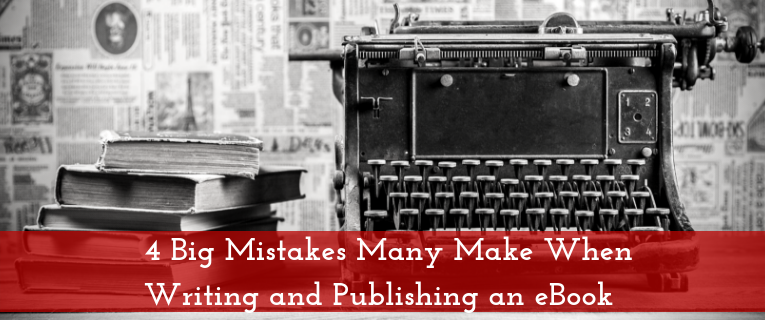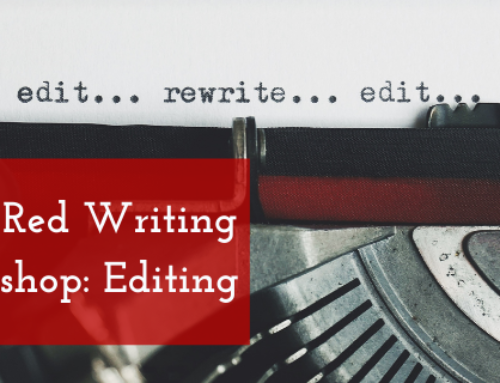You’re writing and publishing an ebook to showcase your expertise in your domain? Great idea! However, credibility is earned, not given. If your book is filled with errors, you could damage your brand more than help. How can you make it the best you can and gain the trust of those looking for answers? Avoid these common mistakes.
Writing Just to Write
Writing and publishing an ebook about your industry is a great idea. You have a wealth of knowledge about your industry, and you want to be seen as a quotable expert for what you know.
But. (You knew there was a “but,” didn’t you?)
As with everything else you do for your business, you need to start with a goal. If you spout vague information, very few people will be willing to part with their email address to get it. They can find information on Google. Center your focus on a problem that your potential clients need to solve. To be successful, you should find out what people are asking. If you have the answer to a question your current clients or social media followers routinely ask, you may have found the gold mine answer for the topic of your book.
Not Hiring a Quality Editor and Other Help
Of course, mistakes will show up here and there—that’s unavoidable. But if the same mistake shows up again, it’s not an accident. If several mistakes appear in an ebook, it’s hard to focus on what the author is actually trying to say. The focus instead is on how many mistakes are in the book. You have lost credibility as an expert. If you don’t care enough to hire an editor, you don’t care enough to present a clear message.
There’s a lot more that goes into writing a book than just writing. You could save money if you plan to typeset your book and design the cover yourself, but will the finished product be as professional as you want it to be? Remember, this book is a reflection of your business. If it doesn’t look right (and if you don’t know what you’re doing, it won’t look right), your readers and potential clients will assume the same about your brand.
Being Outdated
Research is important. It’s one thing you can do to save your customers time. Plenty of people want to have the latest data to look at, but simply are not willing to put in the time to find it. It’s a commitment. If the statistics you are using are too old, they may have changed recently, leading you to incorrect data. Unfortunately, if your reader discovers this, you have been discredited. And as noted previously, one mistake leads to the consideration if any of your material is trustworthy. Even if the data has not changed, and your conclusions are still correct, when a reader sees a date that is ten years old (or sometimes even more recent, depending on the field), they could move on to find a source that is more current (and thus more reliable.)
On the other side of the coin, you should also make sure that you aren’t conducting research just as you are ready to launch your book. Begin with research early, and continue throughout your book preparing process. At some point, you may discover that data has made your topic obsolete. It would be a shame to learn this at the end of the process and need to start all over. New data can drive your book in a different direction. Even as an expert, you can still learn something too!
Not Marketing Your eBook
Here’s a problem that plagues almost every new author, no matter which field. Don’t assume that because you’ve written a book, readers are looking for it. Unless you have already made a name for yourself and have a following, your name probably isn’t trending on Twitter. Marketing will need to start as early as possible, and continue even after your book has been released. Build interest (and an email list) so that once your book is released, people will be aware of it. Keep it in front of your clients’ eyes so they know how to share your name and expertise with others who need it.
Writing and publishing an ebook can be an exciting adventure—one that leads to learning in many areas. In order to keep your reputation, you need to make sure you go through all the proper channels and don’t cut corners. Treat your book as you would treat anything else in your business—with the respect of being the best it can be. If we can help, don’t hesitate to reach out!





